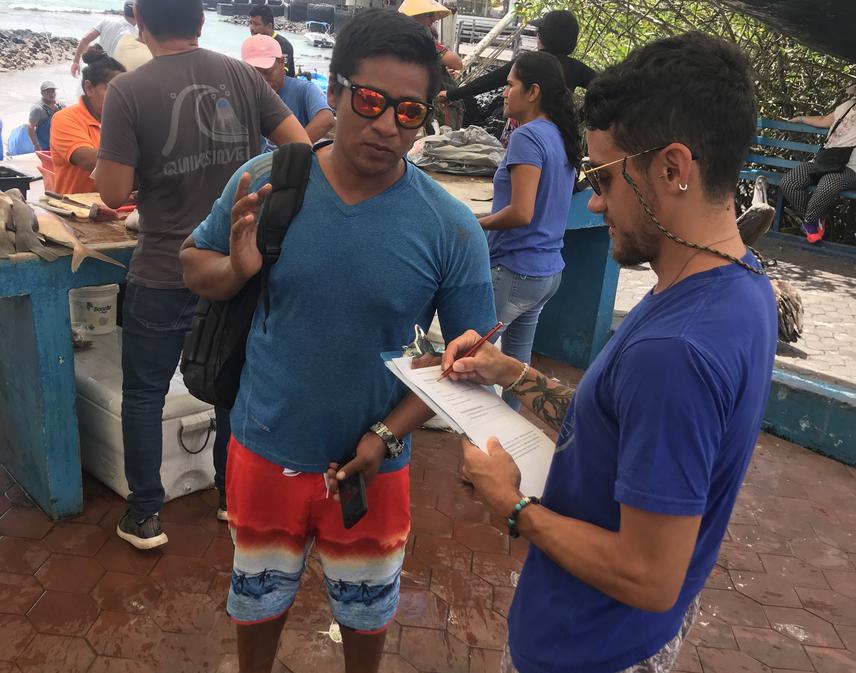José Fernando Pontón Cevallos
After the Galapagos Marine Reserve was created in 1998, a co-management regime for Galapagos fisheries was adopted, which aimed to bring all stakeholders together in the process of decision-making. Though up to date, political background has prevented this regime to be implemented efficiently. Fishers’ ecological knowledge and expert opinions can become reliable sources of information, in addition to scientific information, when decision-makers face the task of producing informed decisions regarding fisheries management. The case studies of fisheries concerning highly vulnerable coastal demersal fish, such as the Galapagos grouper (Mycteroperca olfax), and others depending on mangroves habitat during their life cycle, will be presented and discussed in a series of participative workshops. Inputs from fishermen and other stakeholders will be used towards the construction of decision-support modelling tools that promote the integrated management of coastal habitats and their dependent fisheries.

Interview with fisherman
For this study, we will apply decision-support modelling tools to build and test scenarios that promote integrated management of coastal habitats and their dependent fisheries. We will focus on coastal demersal fishes depending on key habitats as part of their life cycle (especially mangroves), and who are vulnerable to overfishing due to their life-history traits and migrative behaviour (e.g. groupers, snappers). We will use modelling approaches such as Bayesian Belief Networks (BBN) or similar, in which correlative and causal relationships among variables are represented in a graphical manner and expressing their probabilities. One of the advantages of these models is that they can combine empirical data with expert and traditional (fisher’s) ecological knowledge, so the model can be built under a participatory approach.
During the preliminary stage of this project, we will define a main problem tree and different scenarios/solutions using information derived from selected interviews to fishers, managers and fisheries experts. This will allow us to construct a theoretical decision-support model that can be tested under different management scenarios. During the implementation stage of the project, we will conduct separate workshops with fishers, managers and scientists in order refine our model, fill gaps of information, and foresee win-win management situations. A plenary workshop will be held during the final phase of the project, in order to socialise the results of the model, including the most suitable scenario(s). During the plenary, authorities will be exposed to the recommendations and conclusion from study, and the implications for future decision-making.